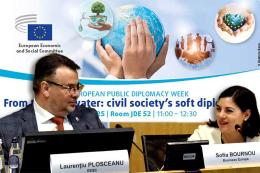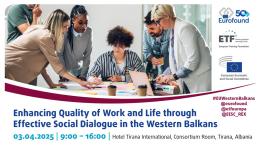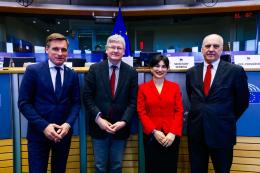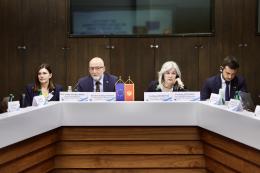European Economic
and Social Committee
Plėtros šalys
EESRK aktyviai dalyvauja ES plėtros procese ir palaiko dvejopus – regioninius ir dvišalius – santykius su pilietinės visuomenės organizacijomis (PVO) plėtros šalyse.
Kalbant apie regioninius santykius, Vakarų Balkanų tęstinio darbo komitetas – nuolatinis EESRK vidaus organas – yra pagrindinė priemonė EESRK veiklai šiame regione koordinuoti. Kas dvejus metus rengiamas Vakarų Balkanų pilietinės visuomenės forumas yra tęstinio darbo komiteto veiklos dalis.
EESRK taip pat vykdo dvišalį bendradarbiavimą su Vakarų Balkanais ir Turkija. Remdamasis šių šalių ir ES asociacijos susitarimais ir siekdamas į pasirengimo narystei ir stojimo procesus įtraukti PVO, EESRK su Turkijos, Juodkalnijos ir Serbijos pilietinės visuomenės atstovais įsteigė tris bendrus organus. Kiekvieną organą sudaro vienodas EESRK ir šalies partnerės narių skaičius, ir jie susitinka du kartus per metus.
EESRK palaiko reguliarius ryšius ir organizuoja bendrą veiklą su plėtros šalių PVO, su kuriomis kol kas nėra įsteigto bendro pilietinės visuomenės atstovų organo.
Bendrų organų darbą papildo EESRK nuomonių dėl atskirų šalių pasirengimo stojimui ir stojimo procesų, taip pat dėl regionams aktualių temų rengimas.









